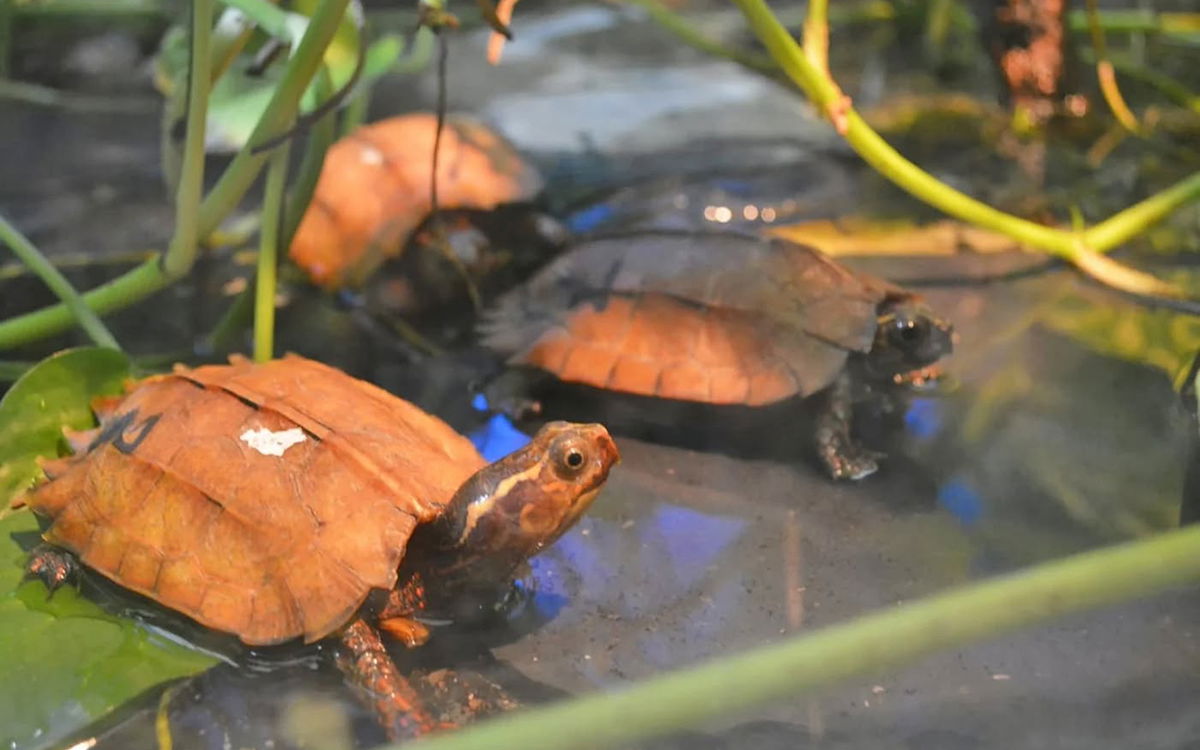The Nature Protection Service (Seprona) of the Guardia Civil in Gandía has intercepted an illegal shipment containing 20 specimens of Geoemyda spengleri, a species of turtle commonly known as the black-breasted leaf turtle. This species is listed in Appendix II of the CITES Convention and is considered one of the smallest turtles in the world.
The parcel, which originated in China, lacked the required documentation and transported the animals in appalling conditions. Several turtles had already died due to stress, mishandling and the prolonged journey. The turtles were hidden among soft toys and placed inside socks.
Geoemyda spengleri, native to Southeast Asia, does not exceed 15 centimetres in adulthood and requires specific environmental conditions for survival. Because the species is included in Appendix II of CITES, its international trade is strictly regulated, and importing it without the appropriate permits constitutes a serious offence with potential criminal consequences.
Following the discovery, the surviving turtles were urgently transferred to Terra Natura Benidorm, a specialist centre for the conservation and care of exotic species. The park’s team of vets and herpetologists immediately activated an emergency care protocol. Upon arrival, the animals received intensive rehydration treatment and critical care to stabilise them and counteract the physical deterioration caused by the conditions of transport.
Seprona officers in Gandía have already launched an investigation into a 53-year-old Spanish national for an offence related to the trafficking of protected species. The possibility of other individuals being involved has not been ruled out.
The technical team at Terra Natura Benidorm has also begun conducting health checks and faecal analyses to detect any parasites or diseases resulting from contact with wild fauna. The turtles have been microchipped for identification and are currently in quarantine under strict veterinary supervision. External advice has been sought to strengthen the clinical response if required.
One of the main challenges facing the Terra Natura Benidorm team is feeding. As an omnivorous species with a highly specialised diet in the wild, experts are working against the clock to identify suitable food options in captivity that will ensure the turtles’ survival and prevent malnutrition.
According to the park’s herpetologist, David Martí, “this case is a worrying example of the real impact of illegal wildlife trafficking – a criminal activity that threatens global biodiversity and puts animal lives at risk. In addition to violating international regulations, practices like these destabilise entire ecosystems and undermine efforts to conserve already vulnerable species.”
Seprona urges members of the public to report any signs of illegal trade in protected species and to support the work of specialised centres such as Terra Natura Benidorm, which are dedicated to safeguarding wildlife and aiding its recovery.
About Terra Natura Benidorm
Terra Natura Benidorm is a nature and wildlife park dedicated to the care of animal species. It is home to more than 150 different species, most of which are vulnerable or endangered. The park is designed around the concept of “zoo-immersion”, where barriers between visitors and animals are hidden among vegetation, creating a sense of continuity between the recreated ecosystems and helping meet the animals’ needs in the most natural way possible.
Terra Natura Benidorm has taken part in several conservation initiatives, including the rehabilitation of injured birds of prey and the successful breeding of endangered amphibians native to the Iberian Peninsula.
The park also collaborated with regional universities on research into the effects of climate change on reptile behaviour, further strengthening its role as a hub for scientific study and species recovery. Educational workshops for local schools have also been stepped up, aiming to raise awareness among younger generations about the importance of biodiversity and environmental stewardship.
Meanwhile, Seprona has intensified its operations across the Valencian Community, carrying out inspections in pet shops, ports and online marketplaces to detect cases of wildlife trafficking and mistreatment. Earlier this year, officers dismantled an illegal breeding operation involving exotic birds in the province of Alicante, and intervened in several rural areas where protected habitats were being damaged by unauthorised agricultural activities. These efforts reflect a broader national strategy to crack down on environmental crime and protect Spain’s natural heritage.
Stay tuned with Euro Weekly News for the latest news about Europe and Costa Blanca.
